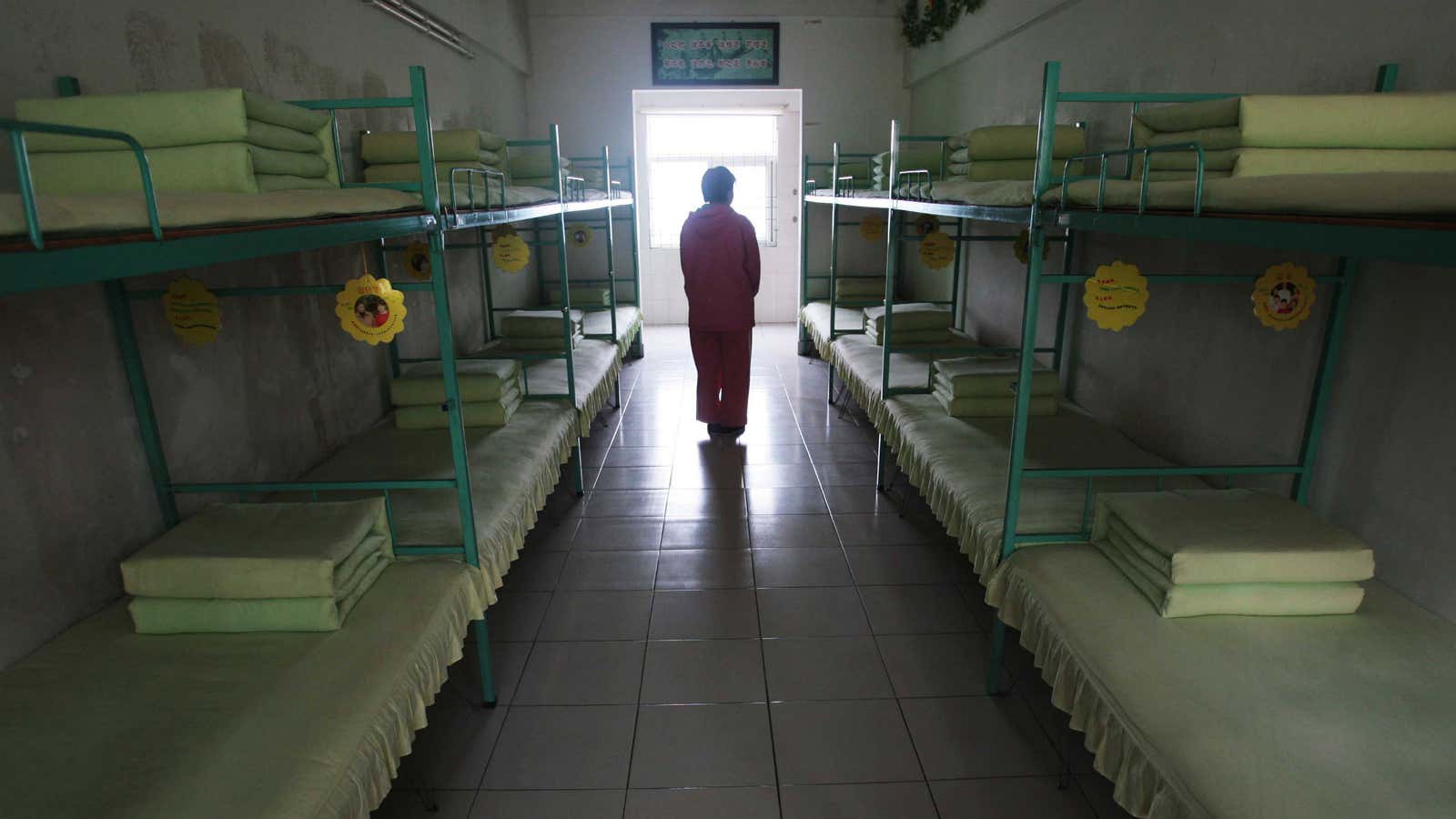Last October, a woman in Oregon opened a box of Kmart Halloween decorations and found a carefully handwritten letter from a Chinese worker in a forced labor camp asking for help. The letter garnered international attention, and for months people debated whether or not it was real.
Turns out, it probably was. According to a New York Times report this week, a 47-year-old man with the surname Zhang says the letter was one of 20 that he tucked into products sent to the West from the Masanjia Labor Camp in Shenyang, China. In the letter, he asked that his note be forwarded to the “World Human Right Organization.” “Thousands people here who are under the persicution [sic] of the Chinese Communist Party Government will thank and remember you forever,” he said. The Times concluded that Zhang’s handwriting and level of English matched the letter; the former inmate is a member of the banned Falun Gong movement.
An estimated 190,000 Chinese citizens are imprisoned in about 350 “re-education through labor” detainment centers across the country. They produce holiday decorations, clothes, or work in agriculture for up to three years. Inmates report exhausting hours and torture, including electric shock treatment and force feeding. The government says the practice changes those who have committed petty crimes into people who “obey law, respect public virtue, love their country…and possess certain standards of education and productive skills for the building of socialism.”
The government has made some noise about ending the camps sometime this year—they are abhorred by the public—but it continues to repress internal discussion of them. In April, a Beijing-based publication published a graphic 14-page report on the harsh conditions at the Masanjia camp that was subsequently erased from the Chinese internet. This month, a filmmaker who made a documentary (paywall) about children at the camp in the 1960s, many of who died of starvation, disappeared (paywall) and is believed to have been detained.
Activists also point out that dismantling the camps won’t stop dissidents from being detained or charged for subversion. Some fear that authorities will start putting more citizens in its network of extra-legal and even less accountable network of “black” jails, usually reserved for petitioners who travel to Beijing to complain about their local governments.
Zhang’s intended audience in the West haven’t been much help either. The letter from last October was sent to the Immigration and Customs Enforcement agency, which said it would look into the case, but a spokesman for the agency couldn’t confirm whether an investigation was taking place. In response to the story, Kmart tweeted today, “Our Global Compliance Program helps ensure vendors & factories follow all employment laws. Not doing so may result in termination.”
